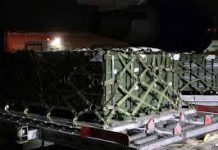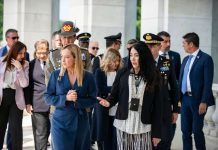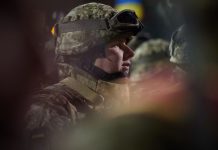
German Chancellor Friedrich Merz made his first international trip as head of government to Paris, where he met with French President Emmanuel Macron. The leaders pledged to strengthen defense cooperation and revitalize the French-German alliance, a cornerstone of European unity.
At a press conference on Wednesday, Macron said both nations will accelerate joint initiatives to develop advanced military capabilities, including next-generation tanks, fighter aircraft, and long-range missiles, though he did not elaborate on specifics.
They also announced plans to establish a Franco-German defense and security council that will meet regularly to address shared strategic concerns with practical solutions.
Merz emphasized the council’s role in better coordinating military support for Ukraine, aligning defense procurement strategies, and addressing long-term security challenges collaboratively.
Macron reaffirmed that the primary duty of France and Germany is ensuring European security, which includes steadfast backing for Ukraine amid ongoing Russian aggression. He stressed the need for increased defense spending in response to threats posed by Russia.
Merz echoed this call, urging all EU member states to ramp up their defense budgets to close capability gaps and sustain military aid to Ukraine. Macron added that France and Germany will support the European Commission’s initiatives to finance critical defense needs and boost investment in Europe’s defense industrial and technological sectors.
Both leaders said they would synchronize updates to their national defense strategies and collaborate on intelligence sharing. Additionally, they introduced a Franco-German defense innovation program aimed at fostering technological breakthroughs for future warfare.
Merz described the talks as a “new beginning” for Europe led by renewed French-German unity, highlighting the need for a more competitive and cohesive European Union. The countries will also expand existing cooperation frameworks like the E3 with the UK and the Weimar Triangle with Poland.
He further stated that Europe must strengthen its defense capacities and NATO’s European pillar, through both bilateral initiatives and collaboration with other European nations. Macron clarified that this does not undermine existing alliances but rather promotes greater European responsibility in defense matters.
Regarding nuclear deterrence, Macron said all related issues should be openly discussed given France’s unique status as a nuclear power with independent capabilities. Merz underlined the importance of trilateral dialogue with France and the UK on future deterrence strategies, while affirming that this would complement—rather than replace—the United States’ nuclear guarantees under NATO.
Merz added that top officials from France and Germany would hold further discussions on these topics in the coming months. He stressed that this is a joint effort to explore ways to enhance European defense, not a departure from the current NATO framework.
Both leaders expressed continued commitment to working with the U.S. and other allies to achieve a ceasefire in Ukraine and ensure a lasting peace based on robust security guarantees. Macron noted that coordination with Merz and his team is ongoing.
Merz mentioned plans to visit Ukraine soon, though specific details are still under negotiation. He stated that security guarantees for Ukraine cannot be detailed until a ceasefire agreement is reached, as the necessary conditions remain uncertain.
He also emphasized the essential role of U.S. political and military involvement in ending the war, stating that while Europe is ready to do its part, continued American leadership is indispensable.
Macron endorsed Merz’s cautious approach to public disclosures about military support for Ukraine, particularly regarding weapon systems like the Taurus missiles. He argued that publicizing such details could inadvertently aid the Russian military.
Though Merz had previously suggested sending Taurus missiles to Ukraine, he avoided making a firm commitment during his first television interview as chancellor. When asked about it, he simply affirmed Germany’s ongoing support for Ukraine. Former Chancellor Olaf Scholz had opposed such a move, citing risks of direct German military involvement.
Finally, the two leaders co-authored an editorial in Le Figaro, laying out their vision for renewed Franco-German cooperation aimed at enhancing European sovereignty. They advocated for prioritizing European-made defense equipment and reducing dependency on external suppliers. Standardization and system interoperability across European defense forces were also emphasized as key goals.




